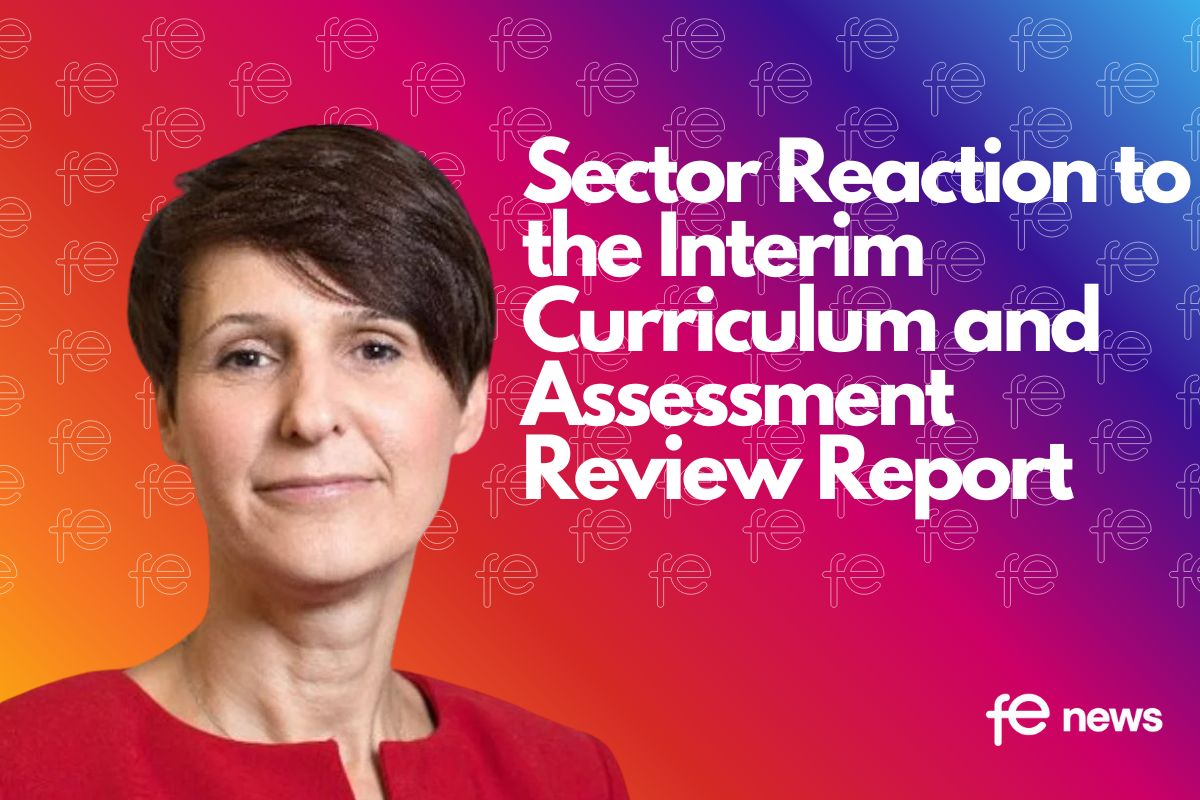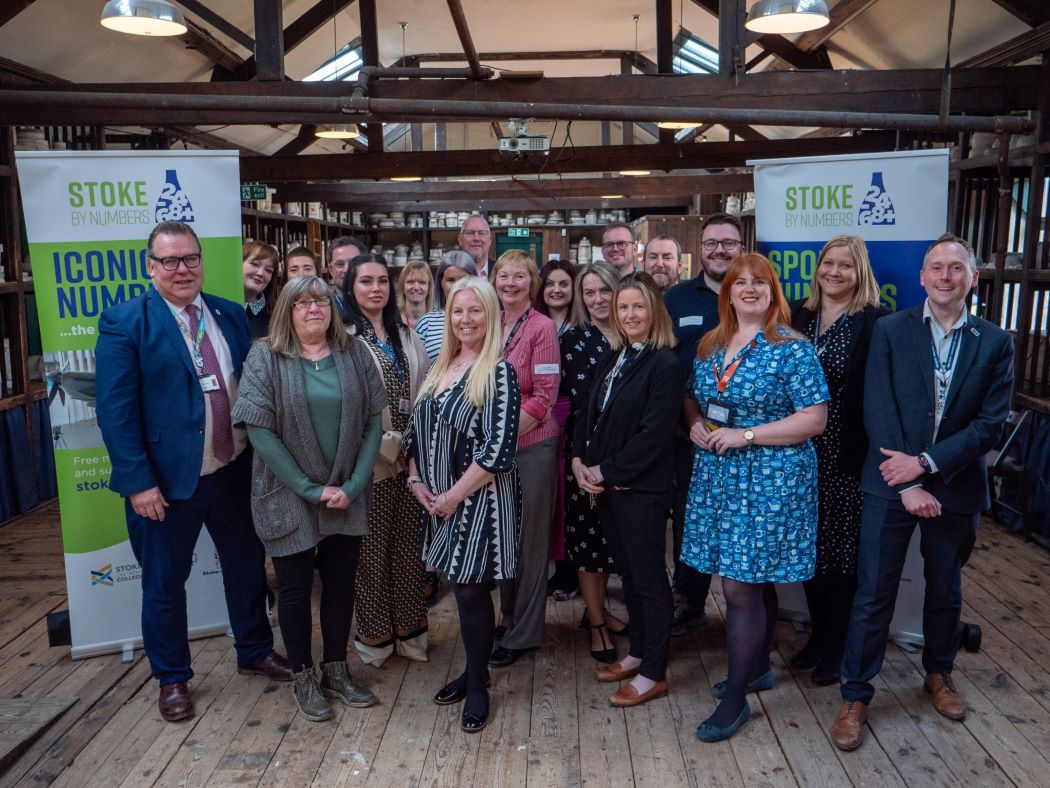Curriculum and Assessment Review Interim Report – Sector Reaction

The Interim Curriculum and Assessment Review Report has been released.
Last year the government launched a Review of the curriculum and assessment system, led by Professor Becky Francis, to look closely at the key challenges to attainment for young people, and the barriers which hold children back from the opportunities and life chances they deserve – in particular those who are socioeconomically disadvantaged, or with special educational needs or disabilities (SEND).
Over 7,000 responses were submitted to the review team as part of an extensive engagement programme, including young people and parents, educators and experts as well as employers and wider organisations with an interest in what is taught in our schools.
Professor Becky Francis and the review panel’s interim report confirms that many aspects of the curriculum and assessment system are working well and reiterates Francis’ initial assessment that the review should be focusing on evolution, not revolution.
However, the panel’s findings highlight that, in practice, ‘high standards’ currently too often means ‘high standards for some’ rather than ‘high standards for all’. The current system is not delivering for young people with SEND, or for those from disadvantaged backgrounds, where there remains a stubborn attainment gap.
The review interim report identifies four key areas needing improvement:
Ensuring high standards for all – exploring how curriculum and assessment can be more inclusive and equitable, to ensure excellence for all.
Addressing subject-specific challenges, and ensuring curriculum is consistently achieving depth and breadth – including an in-depth analysis of individual subjects to ensure appropriate depth and mastery of knowledge, and that subjects are cutting edge.
Responding to social and technological change – examining how education can better prepare students to grasp the opportunities of the future, for example heightened digital skills and media literacy to address trends in digital information and the rise of AI, and scientific and cultural knowledge to meet the challenges of climate change.
Ensuring pathways beyond GCSE work for all – examining the current pathways to ensure they work for all young people in supporting successful routes to further study or employment, especially those from less privileged backgrounds.
Curriculum and Assessment Review Lead, Professor Becky Francis CBE said:
“I have learnt much from our data analysis and research, and from the fantastic response to our call for evidence. The review panel and I have a clear picture of the present state of the curriculum and assessment system.
“We have a deep understanding of where the key challenges lie and where our efforts to improve the system will see the best result in ensuring all young people are able to achieve and thrive.
“This evidence gives us confidence in embarking on the next stage of the review which will see us do further analysis on these issues, including subject content.”
The next stage of the curriculum and assessment review will develop analysis in the four key areas, considering questions that have been raised across different subjects about the specificity, relevance, volume and diversity of content. Keeping in line with the aim of evolution, not revolution, work will include:
- considering concerns that have been raised across subjects about the specificity, relevance, volume and diversity of content, and conduct closer analysis to diagnose each subject’s specific issues and explore and test a range of solutions.
- considering the impact of current performance measures on young people’s choices and outcomes.
- exploring level 2 and 3 pathways at Post-16, with special attention to vocational routes and support for progression.
- conducting further analysis of assessment and consider any necessary improvements.
Interim Report on 16-19 Year old Pathways and Qualifications:
The report highlights on 16-19 year old pathways: The evidence shows that too many young people are not gaining the right knowledge and skills as they progress through the system and by the time they leave formal education are not prepared to thrive in life and work. Almost four in 10 learners are not reaching level 3 by the age of 19 and, perhaps of most concern, around one in seven fail to reach level 2 by the same milestone. Recent estimates suggest that over half (52%) of employers do not agree that young people are well-prepared to move from education to work. All of this has implications for learners’ life chances and for the economy.
Education Secretary Bridget Phillipson said:
“I welcome the important progress Becky Francis and her expert review are making to drive forward work to take the curriculum into the modern era and help deliver on the government’s Plan for Change.
“That means keeping what’s working and evolving what’s not. The report is clear on the importance of primary school assessment, which are simply non-negotiable if we are going to keep pushing standards up for every child and close the attainment gap.
“High standards must also mean greater opportunities and a curriculum fit for the world of today and tomorrow. Our new National Centre for Arts and Music, alongside a renewed focus on giving young people the AI and technical skills they need, are significant steps on the path to making sure every child, wherever they grow up, leaves school truly ready for life and work.”
Culture Secretary, Lisa Nandy said:
“Arts and music bring people together and are enjoyed by communities across the country. We want every child and young person to have equal opportunities to access a high quality arts and music education, to ensure creativity can be explored by all and not just the privileged few.
“The government’s new National Centre for Arts and Music Education will ensure more children and young people’s untapped potential can be unleashed, improving the pipeline of talent for our world class creative industries.”
Darren Henley CBE, CEO of Arts Council England said:
“This bold innovation will nurture England’s next generation of creators, performers and audiences, levelling the playing field for all young people whatever their background. Subjects like art and design, dance, drama and music are central to every child’s education. They come with the added bonus of equipping young people for life by boosting their creativity, their confidence and their social skills. A National Centre for Arts and Music Education is a vital initiative, and we welcome it wholeheartedly.”
Kate Varah, Executive Director and Co-CEO, National Theatre
“Access to excellent arts teaching and experiences at school should be a right for all young people to fuel a creative nation. The National Theatre welcomes today’s announcement from the Department for Education that it will establish a new National Centre for Arts & Music Education, recognising the need to support high quality arts provision in schools. We look forward to consulting with the DfE on the remit of the new Centre and its relationship to the arts sector. It’s brilliant to see the Government’s clear focus on the value of the arts in schools and the need to ensure equity of access for all young people.
Ruth Marvel OBE – CEO The Duke of Edinburgh’s Award
“Enrichment activities and high-quality personal development are a crucial part of a well-balanced, enriched education for all young people – helping them to develop essential skills for life and work, explore their individual interests and talents, and build meaningful relationships with trusted adults and peers.
“We are therefore delighted that Government has responded to calls from DofE, NCS and our partners across the youth and education sectors and today announced it will develop an enrichment framework. The framework, together with best practice guidance and benchmarks, will support schools and colleges to deliver a high-quality enrichment offer for all young people. We look forward to working with the Government, alongside other expert partners, to develop this essential framework.”
FE and Skills Sector Reaction to the Interim Curriculum and Assessment Review Report
Responding to the Curriculum and Assessment Review Interim Report, David Hughes, Chief Executive, Association of Colleges said:
“This interim report rightly points to the need to make changes in four areas of key weakness in the current five to 19 system and sets out the good intention of making balanced and measured changes which do not overwhelm schools and colleges.
“We have had too much abrupt and radical change which has not worked, and which has not engaged schools and colleges and other experts in formulation of proposals and their implementation. The college sector is keen to continue to work with the Review over the coming months to ensure that the final proposals have the very best chance of securing positive and lasting change.
“The interim report’s central conclusion that the current arrangements do not work well enough for large numbers of young people needs to remain at the forefront of the Review panel’s work. I am delighted that the Review has recognised a core and persistent shortcoming in the education system which offers high standards and outcomes for some not for all. The Review sets this out by socio-economic background and by special educational needs and disabilities (SEND) and shows that gaps start young and persist through every stage of learning. By age 16 less than two-thirds are achieving the suite of GCSEs which will help them progress to Level 3 learning.
“The challenge to change this picture is partly about curriculum and assessment but goes beyond that as well and we hope that in the next phase of its work, the Review will look at what can be done particularly in key stage 4 to improve outcomes at age 16, including opening up day release options for some children to experience high quality technical education as part of their wider GCSE programme. We would also like to see more work on transition at age 16 which is a tough one for many young people who may have struggled already in school.
“The fourth area of focus on post-16 is welcomed and touches on some knotty issues, such as how best to support learners who do not study A Levels or T Levels, how to strengthen progression routes from Level 2 to Level 3 and how to improve outcomes in English and maths. We agree that T Levels are not appropriate as they are now for all learners, so we want to support the work needed on increasing access to them and on how other vocational qualifications like alternative academic qualifications (AAQs), technical qualifications (TQs) and applied generals, including on how qualifications can be combined.
“There is a welcome passing reference to the importance of personal development including enrichment outside of the classroom to equip students to be active citizens in their adult lives and to learn the skills and confidence that employers say they want to see. We would like this to have more attention from the Department for Education, given that the Review has not been asked to consider it despite its power to motivate and improve outcomes.
“On English and maths, the review identifies the difficulties, like the impact of disengagement on attendance, and the need to value the progress of students who do not achieve Level 2. The report’s call for nuance is very welcome, as its promise to work closely with the sector to identify solutions, but sadly the Review seems to fall short of considering whether the GCSEs are the best or right qualifications for his age group.
“Overall this is a good report which gives colleges the opportunity to work on core areas of change that are needed if the education system is truly going to work for all. We look forward to working with the Review panel to help work through the final recommendations and ideas.”
Responding to the Curriculum and Assessment Review’s interim report, Nick Harrison, Chief Executive of the Sutton Trust, said:
‘Today’s interim report rightly acknowledges that the current system is not working for pupils from disadvantaged backgrounds. The curriculum review should focus on delivering a modern and broad curriculum that better develops non-academic skills such as communication, confidence, and motivation, widens access to the creative arts, and embeds careers education throughout, preparing students from all backgrounds for life and work.
A diversity of post-16 pathways are needed to ensure success for all students, including those currently facing a GCSE “re-sit trap”, not just those taking A Levels. It’s also welcome to see a focus on building a curriculum that recognises social and technological change and builds skills needed for the future of work.
‘However, tackling the attainment gap will need much more than a fit for purpose curriculum. The Government will also need to invest in tackling teacher shortages in disadvantaged areas and should urgently rebalance the national funding formula so that schools in deprived areas have the funding they need to properly support pupils.’
Tom Ravenscroft, Founder and Chair of Skills Builder Partnership:
“It is good to see the Curriculum & Assessment Review panel has acknowledged the importance of essential skills and is looking at how essential skills could be embedded across the curriculum.
“We are pleased to see the call for the curriculum to respond to social and technological change and the emphasis that building essential skills is not in competition with a knowledge-rich curriculum. The Review is also right that the system is not working well for all: we know that those from disadvantaged backgrounds have fewer opportunities to build their essential skills despite the importance of these skills to life and work outcomes and responding to social and technological change.
“To deliver on the Government’s mission to Break Down Barriers to Opportunity for all children and young people, we need to raise the standards for how essential skills are rigorously taught and assessed, building on everything the 950 organisations in Skills Builder Partnership have learnt.
“In the next stage of the Review, we look forward to working as a Partnership to contribute towards ensuring a curriculum that enables all learners with high quality opportunities to build the essential skills that will unlock the productivity and social mobility this country needs.”
Paul Whiteman, general secretary of school leaders’ union NAHT, said: “School leaders will welcome the recognition in the interim report that the current curriculum and qualifications are overcrowded with content. They will support the commitment to review specific subjects, make improvements and ensure all pupils are represented in the curriculum.
“NAHT are pleased that the negative impact of the EBacc, the excessive volume of assessment from GCSE’s, the ineffective resit policy and the need for a range of vocational and technical qualifications post 16 are all acknowledged and will be subject to further exploration. We hope this does result in clear recommendations for positive change.
Sarah Porretta, CEO, Young Enterprise
“The voices of parents and young people in this report couldn’t be clearer – financial education is a top priority. With nearly half of parents saying there isn’t enough time spent on financial management, and a third of students wanting more focus on finance and budgeting, the evidence is overwhelming. We know the desire is there, but turning this into real change will require action. Teachers need the time, training and resources to deliver high-quality, applied financial education – and it cannot just be in the maths classroom. The opportunity this interim report presents is significant, direct action on ensuring that ‘real-world’ knowledge and skills infiltrates across subjects will not only set young people up for the future but offers the potential to improve their present. As we await the final report, it’s clear that this moment offers the Government a real chance to deeply embed financial education into the fabric of this country, and we look forward to continually working in partnership with the wider education and financial sector to support this.”
Polly Mackenzie, Chief Social Purpose Officer at University of the Arts London (UAL), said:
“It’s good to see the interim report of the Curriculum and Assessment Review focus on a broad and balanced curriculum. Recognition that the EBacc has narrowed opportunities for young people to access arts education and experiences is an important step forward.
“The Review rightly highlights the challenges that curriculums face in a rapidly changing world. As technologies such as AI reshape industries and our society, the need to understand human culture through the arts and humanities is more crucial than ever. Creative skills are not just valuable; they are essential. Every young person should have the opportunity to access skills needed within our changing world for their future. We hope the final review recognises that creativity is fundamental to this and supports a range of pathways for a diverse range of learners.
“At University of the Arts London, we’ve long called for an education system that values creativity as highly as STEM. Creativity isn’t a ‘nice to have.’ It’s fundamental to the UK’s global success in the Creative Industries, to training the workforce of the future and to ensuring that everyone, no matter their background, can experience the joy and opportunity it brings.
“It’s incredibly welcome to see the government rightly recognise the Creative Industries as a key driver of growth in its Industrial Strategy. To truly unlock that potential, we need an education system that nurtures creative talent from the very start. As the review progresses, we hope it takes the opportunity to make this a reality.”










Responses